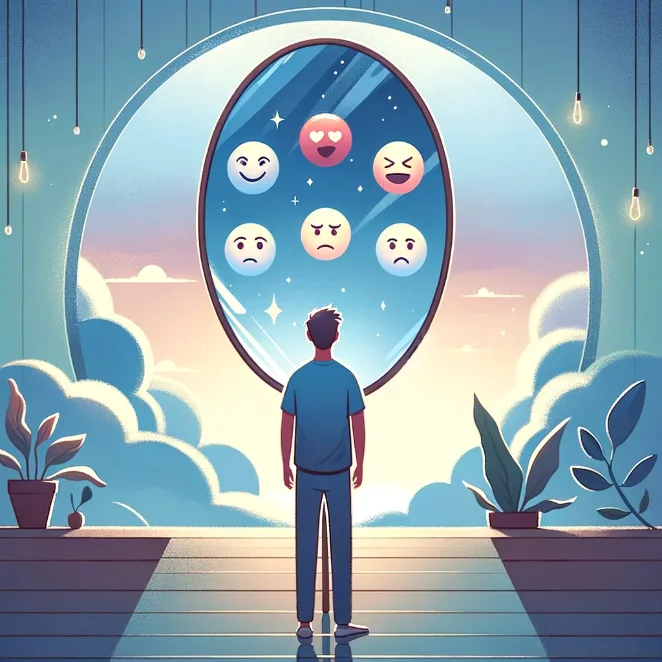
Heart Smart: Emotional Intelligence in Relationships
In the realm of relationships, emotional intelligence (EI) emerges as a key factor in fostering deep and lasting connections. Unlike traditional intelligence, EI revolves around understanding, managing, and effectively expressing emotions. Dr. John Mayer, a leading psychologist in the field, describes it as "the ability to accurately perceive your own and others’ emotions; to understand the signals that emotions send about relationships." In this exploration, we introduce Sarah whose journey in relationships exemplifies the transformative power of emotional intelligence
article by Sofia Ferguson
Understanding Emotions: The Basics
Emotions are complex psychological states involving three distinct components: a subjective experience, a physiological response, and a behavioral or expressive response. Dr. Daniel Goleman, a renowned author on EI, states, "Emotions are, in essence, impulses to act, the instant plans for handling life that evolution has instilled in us." Sarah's journey starts with her struggle to understand her emotions, a challenge many face in their personal interactions.

Self-Awareness: Sarah's Revelation
Self-awareness, a core component of EI, involves recognizing and understanding one's own emotional state. Sarah, often perplexed by her emotions, learns through therapy that self-awareness is the first step towards emotional intelligence. Dr. Mayer asserts, "Self-awareness in emotional intelligence involves not only recognizing one’s own emotions but also understanding their impact on one’s behavior and relationships."
Self-Regulation: Managing Emotions
Once aware of her emotions, Sarah learns to manage them effectively – a skill known as self-regulation. This means not letting emotions control her reactions but rather understanding and channeling them constructively. According to Dr. Goleman, the root of emotional self-regulation lies in the ability to delay gratification and stifle impulsiveness.
Empathy: Walking in Others' Shoes
Empathy, the ability to understand and share the feelings of another, is central to EI. Sarah's journey shows how empathy strengthens relationships by promoting understanding and compassion. Empathy is essential for social interaction; it allows us to perceive how others might react or feel in response to our actions.

Social Skills: Navigating Relationships
Developing strong social skills is an integral part of EI. For Sarah, this means improving communication, conflict resolution, and the ability to build and maintain relationships. Dr. Goleman emphasizes, "Social skills, a component of emotional intelligence, involve managing relationships to move people in desired directions."

Emotional intelligence, as seen through Sarah’s story, is fundamental in building and sustaining compatible relationships. It goes beyond mere emotional awareness to include understanding, empathy, and regulation. EI is not just about managing one’s own emotions but also about navigating and enriching interpersonal relationships.
Published: 11/11/2023
Modified: 11/11/2023
More predictions
Come back here soon to learn more about yourself and your future





